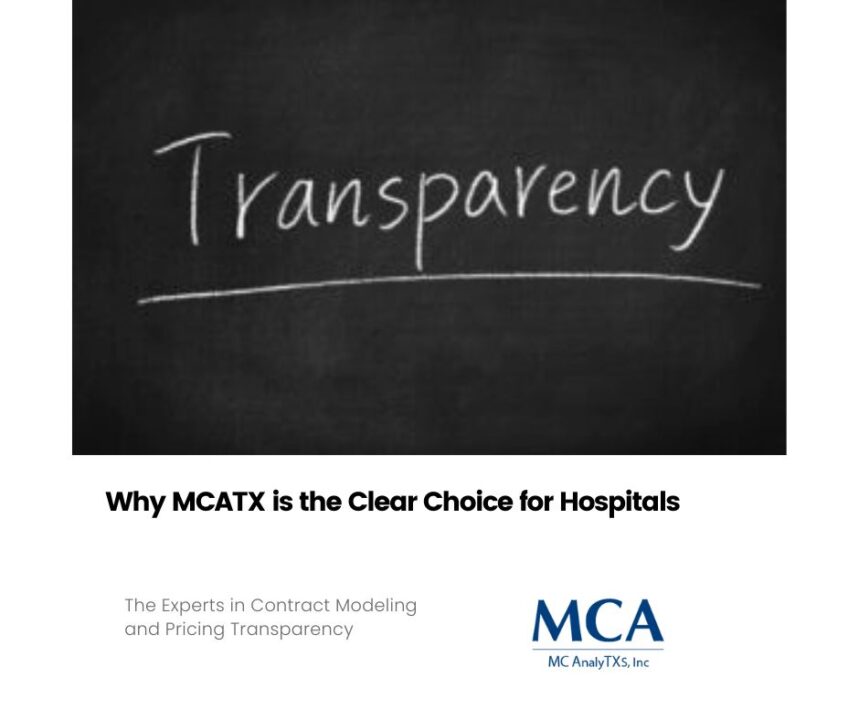
Why Managed Care Directors Should Be Working with an RCM Partner for Financial Efficiency in 2024
May 30, 2024
Introduction
Hospital CFOs play a critical role in ensuring the financial health and sustainability of healthcare institutions. In an industry characterized by rising costs, regulatory changes, and shifting reimbursement models, maintaining a perpetual cost-improvement mindset is not just advantageous—it’s essential. A strategic approach to cost management can empower CFOs to drive efficiency, enhance patient care, and safeguard their organizations’ financial stability.
Understanding the Current Challenges
Financial Challenges in Healthcare
The healthcare sector faces unique financial challenges that demand innovative solutions. Hospitals are grappling with escalating operational costs, reduced reimbursement rates, and increasing regulatory requirements. Additionally, the shift toward value-based care necessitates a departure from traditional fee-for-service models, further complicating financial management.
Impact of the Changing Healthcare Landscape
The adoption of new technologies, evolving patient expectations, and the ongoing effects of the COVID-19 pandemic have intensified financial pressures on hospitals. To navigate these complexities successfully, hospital CFOs must adopt a proactive, forward-thinking approach to cost management.
Strategies for Cultivating a Cost-Improvement Mindset
Implementing Data-Driven Decision-Making
Data-driven decision-making is at the heart of effective cost management. By leveraging advanced analytics and real-time data, CFOs can identify inefficiencies, monitor performance, and make informed decisions that drive cost savings.
Actionable Steps:
- Invest in Analytics Platforms: Utilize robust data analytics tools to gather and analyze financial, operational, and clinical data.
- Establish Key Performance Indicators (KPIs): Define KPIs that align with cost-management goals and track them consistently.
- Conduct Regular Reviews: Hold quarterly or monthly reviews to assess financial performance and adjust strategies as needed.
Leveraging Technology for Operational Efficiency
Technological advancements offer numerous opportunities for hospitals to enhance operational efficiency and reduce costs. From electronic health records (EHRs) to AI-driven diagnostics, technology can streamline workflows, reduce redundancies, and improve patient outcomes.
Actionable Steps:
- Adopt Automation Tools: Implement automation tools for administrative tasks such as billing, scheduling, and inventory management.
- Integrate Telehealth Services: Expand telehealth offerings to reduce overhead costs and accommodate patient preferences.
- Utilize Predictive Analytics: Use predictive analytics to forecast demand, manage resources, and optimize staffing levels.
Fostering a Culture of Cost-Consciousness and Accountability
Creating a culture of cost-consciousness requires the engagement of all staff members, from frontline workers to senior executives. Encouraging staff to take ownership of cost-saving initiatives and holding them accountable for financial performance can lead to significant improvements.
Actionable Steps:
- Conduct Training Programs: Offer training sessions on cost-management principles and best practices.
- Implement Incentive Programs: Introduce incentive programs that reward staff for identifying and implementing cost-saving measures.
- Communicate Transparently: Maintain open lines of communication about financial goals, challenges, and successes.
Long-term Financial Planning
Importance of Forward-Looking Financial Strategies
Long-term financial planning is crucial for sustaining hospital operations and achieving strategic objectives. By adopting a forward-looking approach, CFOs can anticipate future challenges, allocate resources effectively, and ensure the organization’s financial health.
Actionable Steps:
- Develop Multi-Year Financial Plans: Create comprehensive financial plans that outline revenue projections, expense forecasts, and capital investments.
- Conduct Scenario Planning: Use scenario planning to explore potential future scenarios and develop contingency strategies.
- Focus on Revenue Diversification: Identify and pursue opportunities to diversify revenue streams, such as expanding service lines or forming strategic partnerships.
Tips for Developing Sustainable Financial Plans
- Engage Stakeholders: Involve key stakeholders in the financial planning process to ensure alignment and buy-in.
- Monitor External Trends: Stay informed about industry trends, regulatory changes, and economic factors that could impact financial performance.
- Review and Adjust Regularly: Regularly review financial plans and adjust as needed to respond to changing circumstances and emerging opportunities.
Conclusion
Cultivating a perpetual cost-improvement mindset is essential for hospital CFOs to navigate the complexities of the modern healthcare landscape. By implementing data-driven decision-making, leveraging technology, fostering a culture of cost-consciousness, and adopting forward-looking financial strategies, CFOs can drive efficiency, enhance patient care, and ensure their organizations’ financial stability.
As you embark on this journey, remember that continuous improvement is a collective effort. Engage your staff, encourage innovation, and stay committed to your financial goals.
Start implementing these strategies today and take your first step toward a more efficient and financially stable future.
Connect with us for more insights and resources tailored to hospital CFOs. Together, we can build a stronger, more resilient healthcare system.





